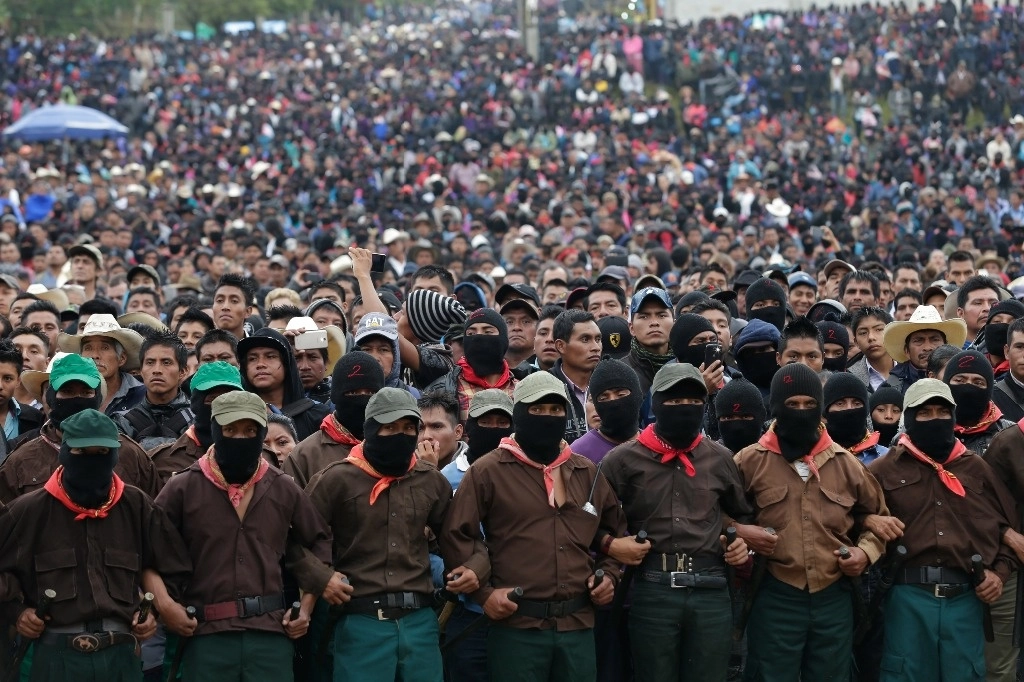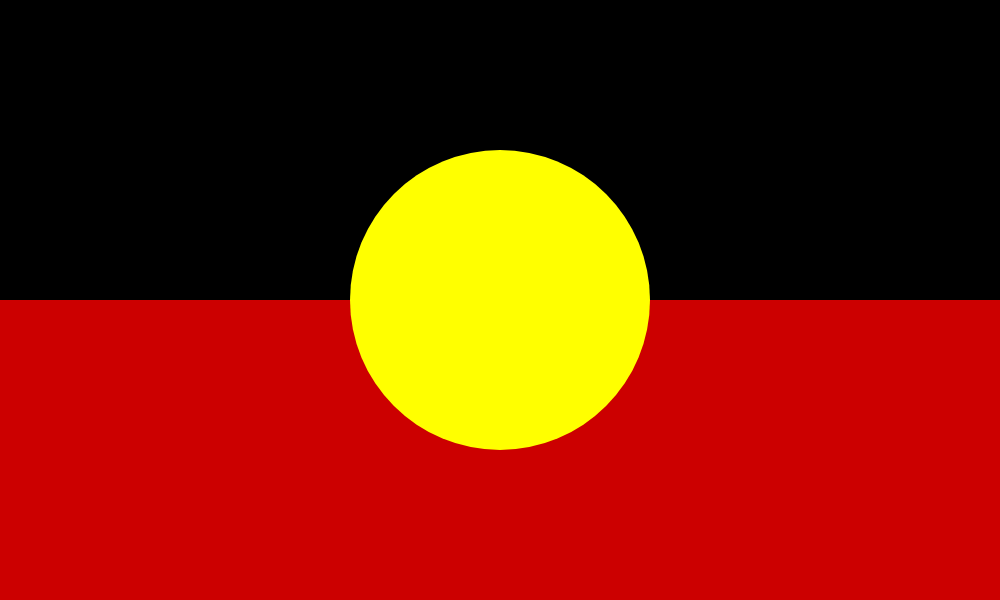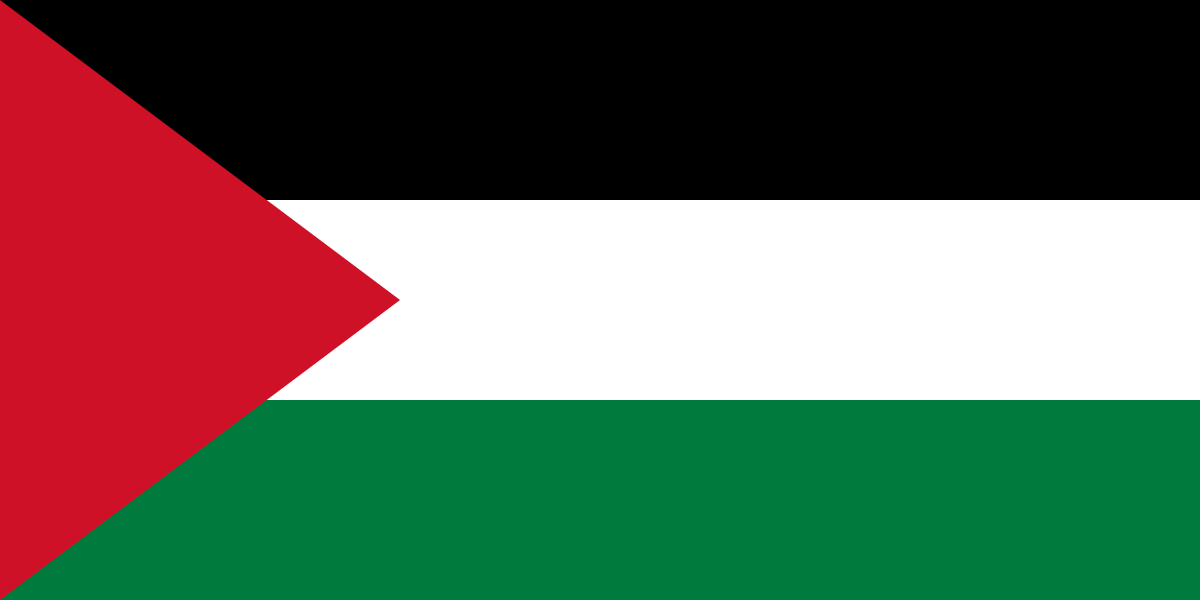The political-military origins of the EZNL are found in the National Liberation Forces (FLN), a clandestine organization formed at the end of the 1960s in northern Mexico, inspired by the Cuban revolution, the FLN organized a guerrilla struggle with the aim of achieving the construction of socialism in Mexico. But some time later, in the early 1970s, they ended their activities abruptly when their structure in Mexico City was discovered by state security forces and many of their militants, both in Chiapas and Mexico City, were brutally assassinated. However, its survivors did not give up and managed to reorganize and settle in 1983 in Chiapas, pursuing the same objectives. However, in order to achieve their objectives, they formed the EZLN and a social base to sustain it.
The main social base of the EZLN is in the indigenous municipalities of the Cañadas region, the highlands and the northern zone of Chiapas. A large number of the commanders are indigenous and, at least since 1993, the military apparatus has been subordinated to a council of delegates from the Zapatista communities called the Clandestine Revolutionary Indigenous Clandestine Committee (CCRI). The indigenous communities in the country have a long history of exploitation, abandonment and exclusion from national political and economic life, and have strengthened their community organization, while historically leading various social movements in search of improving their living conditions, preserving their traditions and customs or for their self-determination and government; The jungle zone and the highlands of Chiapas are no exception, so the guerrilla group that arrived there found an already highly politicized indigenous society, with experience in mobilization and with permanent communication with diverse political and social organizations; The little or no response to their demands on the part of federal, state or local authorities, and the permanent violation of their fundamental rights, may explain, on the one hand, the reasons why they opted for the armed struggle in 1994. On the other hand, their growing participation in the Zapatista uprising reinforced the indigenous character of the EZLN, which quickly integrated their demands in its program and discourse, which generated that during the negotiations with the federal government, a process was initiated to establish a new relationship between the State and the indigenous peoples of the country. The EZLN, on behalf of the national indigenous movement, incorporated the demands and proposals of the various indigenous representations of the country.
Being the indigenous peasants “support bases” for the EZLN, we can highlight five forms of cooperation between these two groups: safeguarding the clandestinity of the insurgents; recruiting new combatants; guaranteeing supplies to sustain the guerrillas; participating in protest mobilizations; and carrying out collective infrastructure work and (inter)community services. These functions strengthen the bonds of (inter)community solidarity, increase social integration and strengthen a “Zapatista identity”.
In the 1994 uprising in Chiapas, the EZLN demanded the vindication of the ownership of the lands taken from the indigenous communities, a better distribution of wealth and the participation of the different ethnic groups in the organization of the state and the country; the reaction of the federal government was to send troops to Chiapas to quell the rebellion. The mobilizations of the civil society stopped the attacks and after 12 days of armed conflict, the federal government unilaterally declared a ceasefire.
The talks between the EZLN and the federal government ended with the signing in February 1996 of the San Andres Accords on “Indigenous Rights and Culture”, which committed the State to recognize indigenous peoples constitutionally and to grant them autonomy. The dialogues also gave rise to the foundation of the National Indigenous Congress (CNI) on October 12, 1996, a movement of indigenous peoples, neighborhoods, tribes, nations, collectives and organizations, with the slogan “Never again a Mexico without us” and with the objective of the integral reconstitution of the indigenous peoples. In March 1995, the Commission for Concord and Pacification (COCOPA), a bicameral legislative commission made up of the Mexican Chamber of Deputies and Senate, was formed to assist in the dialogue process.
Shortly after they were signed, the San Andres Accords were ignored by President Ernesto Zedillo. A policy of encirclement and siege, organized by the federal and local governments with the support of landowners and cattle ranchers, organized paramilitary forces trained by the army itself and allocated considerable resources to the cooptation of citizens and groups, while at the same time accentuating the expulsion of opponents from their lands and villages.
COCOPA, which was charged with drafting a proposal for constitutional reform that would include the main consensuses established in the San Andres Accords, presented its initiative to the parties in November 1996; the EZLN accepted the proposal; the President, although he accepted it at first, soon proposed modifications that substantially changed the proposal, without recognizing the rights of the indigenous peoples, and without recognizing any compromise. The peace process became bogged down.
In 2003, the EZLN announced the creation of Los Caracoles and the Good Government Councils, which reinforced the principle of “commanding by obeying”, -they listen, do, decide and command, obeying the communities and their territorial organizations-, and in the autonomy they allow to propose a strong project of networks with national and international possibilities. Since its creation, Zapatista teachers and doctors have been trained and schools and clinics have been built. In addition, a justice system has been developed which is used by both Zapatistas and other members of society, as it is more efficient than the institutional system.
The Caracoles, in the words of Pablo González Casanova, “open new possibilities of resistance and autonomy for the indigenous peoples of Mexico and the world, a resistance that includes all social sectors that fight for democracy, freedom and justice for all”.
Megathreads and spaces to hang out:
- 📀 Come listen to music and Watch movies with your fellow Hexbears nerd, in Cy.tube
- 🔥 Read and talk about a current topics in the News Megathread
- ⚔ Come talk in the New Weekly PoC thread
- ✨ Talk with fellow Trans comrades in the New Weekly Trans thread
- 👊 Share your gains and goals with your comrades in the New Weekly Improvement thread
- 🧡 Disabled comm megathread
reminders:
- 💚 You nerds can join specific comms to see posts about all sorts of topics
- 💙 Hexbear’s algorithm prioritizes comments over upbears
- 💜 Sorting by new you nerd
- 🌈 If you ever want to make your own megathread, you can reserve a spot here nerd
- 🐶 Join the unofficial Hexbear-adjacent Mastodon instance toots.matapacos.dog
Links To Resources (Aid and Theory):
Aid:
Theory:



Thinking about "they hate us for our freedom."
Really reinforces my conviction that Roderic Day is fundamentally correct about propaganda. Settlers aren't helpless victims of brainwashing, they willingly seek out self-flattery.
It's absurd on its face to think that anyone was "brainwashed" by something as transparently false and stupid as "they hate us for our freedom." Not even the slightest kernel of truth, but it's flattering.
idk, I'm sure there are other credulous autists like me out there who buy these things until they grow up and get some adult life experience that isn't filtered through their chud families
or maybe I'm the only one 🤷 who can say
nope not the only one.
I was a dum dum who was brainwashed by western propaganda. I thought Islam was evil LGBT were evil, china was evil, immigrants were evil. I didn't want to be hateful. My material conditions weren't something that needed to be protected or that were protected by my hate. I was just sheltered from real analysis and taught to not question things.
Worth remembering that "Brainwashing" is itself a US Propaganda invention that they came up with in a panic when captured and defecting US Airmen in Korea were admitting on TV that the US was using biological and chemical weapons against Korean civilians.
My take is a lot of what people believe isn't so much about belief as about defending their position in their social group. If believing something would be dangerous and ostracize people from friends, family, or economic security a lot of people are going to decide to not believe it to protect their status within the group. You can see it a lot with Dems - They can believe they utterly fucked up the campaign miserably, or they can continue to believe that electoral support for the Democrats is worthwhile. But you can't believe both. And a lot of them decide to believe the thing that protects their personal identity as Democrats and good liberals, as well as their social connections with their community. And there's all kinds of intersections, with different identity groups having different relations to ideas that may make believing the wrong thing dangerous for and individual, or harm their economic position.
Roderic Day's essay on brainwashing is trash. You can quibble about the name "brainwashing" but the word works. The systems of brainwashing aren't 100% successful but neither is any other type of "washing."
If brainwashing isn't real what do you call the process where inmates tortured by the usa in Abu-ghraib turned around and joined ISIS to fight for usa?
Modern propaganda tactics that hide the truth and silence dissenting opinions are real and obvious things. They have people literally convinced anyone that says "NATO started the war in ukraine" is a paid Russian agent. That is fucking brainwashing.
If you are never exposed to the truth you don't seek it out. Western brainwashing is focused on denying the truth and getting people to reject even discussing issues because they know that open discussions make the narrative fall apart.
Blaming the "treat spoiled 1st worlders" for not seeing past their own self interest is the same bullshit as blaming them for climate change. It is a defeatist attitude that says "don't bother trying to talk to them because they have already consciously made their choice."
The entire premise is just wrong.
Why weren't you and the people you were apparently bigoted against equally susceptible to the propaganda? American culture is broadcast to every inch of the globe, why is it that those who benefit from the global economic system are most susceptible to it while those who benefit least are the least susceptible to it? There are obvious exceptions, like people at the bottom of a hierarchy embracing Capitalist ideology in an attempt to escape their conditions, and, you know, Engels. But I think it's frankly absurd to argue that it's not generally true.